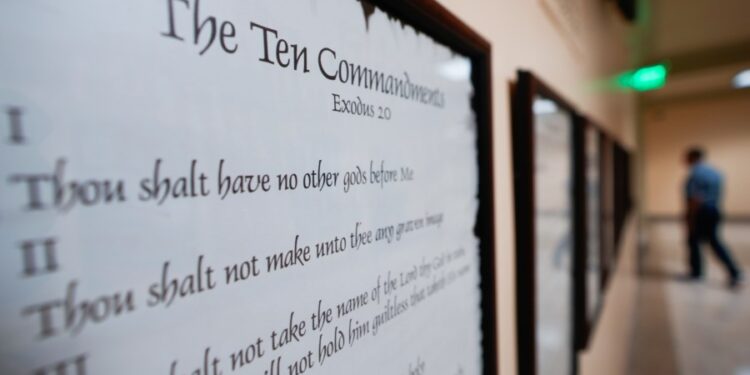
NASHVILLE, Tenn. (WKRN) — Giving public schools across the Volunteer State the choice to post the Ten Commandments is the goal of a Middle Tennessee lawmaker. Critics say the idea crosses the line of religious freedom, but supporters say the Ten Commandments are a founding historical document of our country. NewsNation affiliate WKRN spoke with all sides.
“The fact is, if we lived by those Ten Commandments, we could pretty much shut down our jails and we’d all be in a lot better place as a country and as a state,” said state Rep. Michael Hale, R-Smithville.
That’s one reason Hale would like public schools to have the opportunity to post the Ten Commandments, if they so choose.
“The big thing is we’re not forcing anybody to do anything,” said Hale.
Hale’s legislation, House Bill 0047, allows local school boards and public charters to display other documents such as the Declaration of Independence, the federal and state Constitutions, and the Bill of Rights, among others. However, according to religious experts, the Ten Commandments can get tricky.
“It’s been adopted in other states, and, of course, quickly subjected to court challenges,” said Professor James Hudnut-Beumler, who teaches American religious history at Vanderbilt’s Divinity School.
Hudnut-Beumler said the courts have set precedent that allows the Ten Commandments to be displayed in a public setting like a state capitol, but not necessarily in schools with children. In fact, a similar Ten Commandments case in Louisiana is stuck in court.
“Of course, the Supreme Court is free to rule otherwise, but from the 1940s onward, there has been a concern about coercing children into doing something that their parents religiously might not approve of,” said Hudnut-Beumler.
As head of Professional Educators of Tennessee, J.C. Bowman represents many of the Volunteer State’s teachers. He has his concerns about this idea.
“Ten Commandments are not bad. I don’t think anybody’s saying that. I do think that what we’re saying is that, how much more can we continue to put on schools before we lose our focus on education?” said Bowman.
Catholics and Protestants have different versions of the Ten Commandments, which raises a new question — which one would be put up in schools?
The legislative session starts Jan. 14.
“The roughly 70,000 people that I represent that they would be glad to have this opportunity to be able to place these, but yet we’re not trying to cram something, I guess you would say, down somebody’s throat,” said Hale.
In 1980, the U.S. Supreme Court ruled that a law requiring the Ten Commandments to be displayed in public schools violates the First Amendment’s Establishment Clause, but the court has recently swung more conservative.







